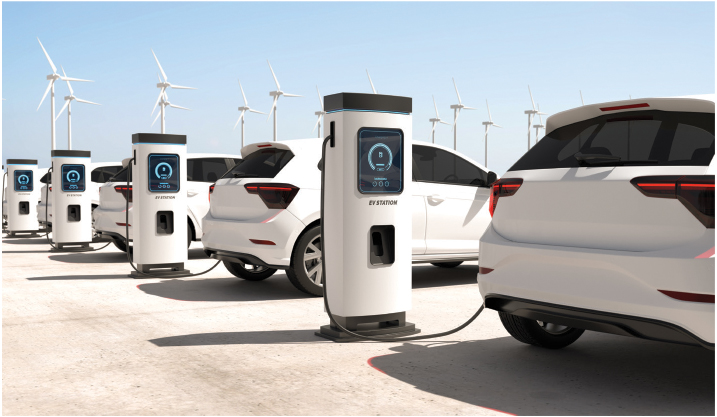In recent years, the electrifying rise of urban electric cars has redefined the landscape of sustainable mobility. According to Bloomberg Green, electric vehicle (EV) sales in city centers have surged by an astounding 50% in the past year alone, underscoring their growing popularity and necessity. Urban electric cars are not just a fleeting trend; they are a pivotal element in the global shift towards sustainability. In this article, we will explore how these vehicles are shaping the future of urban transport, the technological advancements driving them, and what this means for consumers looking to embrace greener lifestyles.
The Rise of Urban Electric Cars: A Sustainable Solution
The Growing Demand for Urban EVs
Urban electric cars have become synonymous with sustainable living, particularly in densely populated cities where air quality and traffic congestion are pressing concerns. Major automakers like Tesla, Volkswagen, and Hyundai have responded by developing compact, efficient models designed specifically for urban environments.
- Tesla Model 3: Leading the charge with its impressive range and sleek design, the Model 3 has become a favorite for city dwellers.
- Volkswagen ID.3: Known for its affordability and advanced features, the ID.3 is tailored for the European urban market.
- Hyundai Kona Electric: Offers a blend of compact design and robust performance, ideal for city driving.
The International Energy Agency (IEA) reports that by 2030, electric vehicles could account for 30% of all vehicles on the road, driven largely by urban adoption. This shift is not only reducing carbon footprints but also transforming how cities are designed and experienced.
Technological Advancements Powering Urban EVs
Battery Innovations
The heart of any electric vehicle is its battery. Recent advancements in battery technology have significantly enhanced the efficiency and affordability of urban electric cars. According to PV Magazine, solid-state batteries, which promise greater energy density and faster charging times, are on the brink of commercialization.
- Lithium-Iron Phosphate (LFP) Batteries: Utilized by brands like BYD and Tesla, these batteries offer a longer life cycle and are more sustainable.
- Solid-State Batteries: Expected to revolutionize the EV market by providing longer ranges and reducing charging times.
Smart Charging Infrastructure
As urban electric cars become more prevalent, the development of smart charging infrastructure is crucial. Cities worldwide are investing in public charging stations to meet the demand.
- Fast-Charging Stations: Allow drivers to recharge in under 30 minutes, making daily commutes more convenient.
- Wireless Charging Technology: Being tested in cities like Oslo, this could soon become a standard feature, reducing the need for physical connections.
Practical Tips for Urban Electric Car Owners
How to Charge Your Urban EV Efficiently
Charging your urban electric car efficiently can maximize its lifespan and reduce costs. Here are some tips:
- Use Off-Peak Hours: Charging during off-peak hours can save money and reduce strain on the grid.
- Regular Software Updates: Keep your car’s software up-to-date to improve battery performance.
- Avoid Frequent Fast Charging: While convenient, frequent fast charging can degrade battery health over time.
Where to Buy Urban Electric Cars
When considering where to buy an urban electric car, it’s essential to compare dealers and online platforms:
- Authorized Dealerships: Offer certified pre-owned options with warranties.
- Online Platforms: Websites like Tesla’s and Volkswagen’s allow for direct purchases with customizable options.
What to Compare When Choosing an Urban EV
When selecting an urban electric car, consider the following factors:
- Range: Ensure the car meets your daily commuting needs.
- Price: Consider total cost of ownership, including incentives and rebates.
- Features: Look for smart tech integrations, such as autonomous driving capabilities and infotainment systems.
The Impact of Urban EVs on Sustainable Mobility
Urban electric cars are more than just a means of transport; they are catalysts for broader environmental and societal changes. By reducing emissions, they contribute to cleaner air and healthier communities. Their quiet operation decreases noise pollution, while their innovative designs inspire new urban planning strategies that prioritize pedestrian and cyclist spaces.
Moreover, electric vehicles align with global sustainability goals. According to the IEA, the transportation sector accounts for nearly 25% of global carbon emissions. By transitioning to electric mobility, cities can significantly lower these figures, achieving climate targets more effectively.
Conclusion: Embracing the Future of Urban Mobility
Urban electric cars are not just shaping the future of sustainable mobility—they are at its forefront. As technology continues to evolve and infrastructure expands, the accessibility and appeal of these vehicles will only increase. For those considering making the switch, now is the perfect time to explore the benefits and opportunities that urban EVs offer.
Are you ready to be part of the sustainable mobility revolution? Share your thoughts and experiences with urban electric cars in the comments below. As we look ahead, the future of urban transport is not only electric but also excitingly sustainable. With continued innovation and adoption, urban electric cars promise to transform our cities into cleaner, greener spaces for generations to come.

